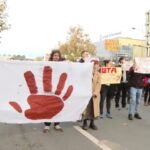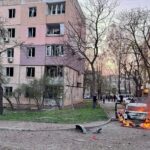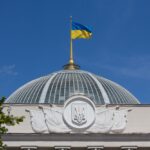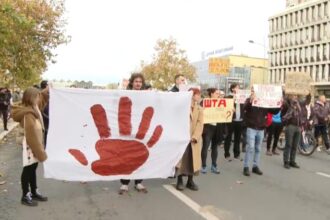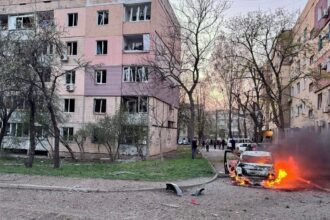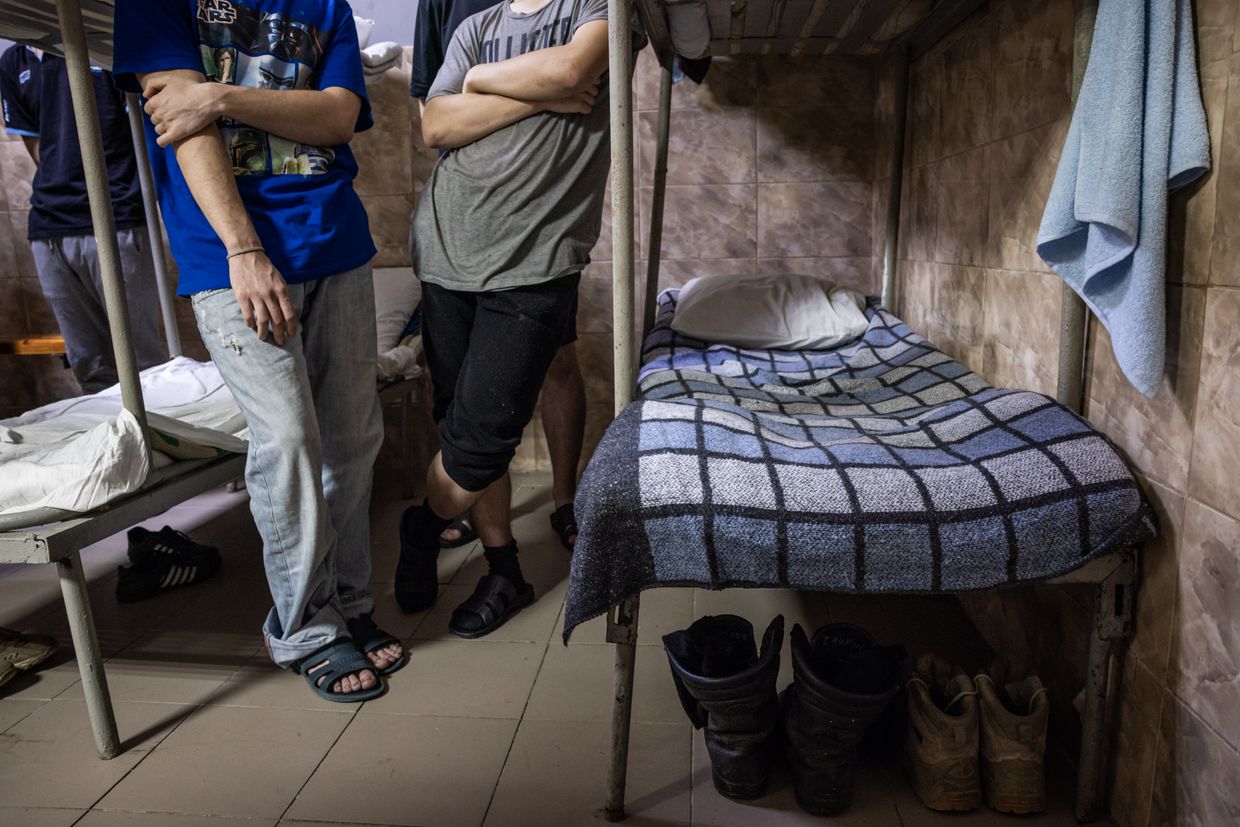The Russian organization “Our Way Out”, reported that many of the 95 Russian prisoners-of-war (POWs), exchanged in the recent Moscow-Kyiv prisoner exchange were conscripts captured by the Kursk Oblast.
On October 18, Ukraine and Russia conducted their 58th exchange of prisoners, each side exchanging 95 detainees. Maksym butkevych, a human rights activist and 34 soldiers from the Azov regiment are among those who have been returned to Ukraine.
According to “Our Way Out,” a Russian women-founded organization that helps families locate their relatives in Ukraine, the returned Russian prisoners are mostly conscripts.
The prisoners returned also included some Russian fighters mobilized and contract soldiers including kadyrovtsy – the notoriously brutal troops named after Chechen strongman Ramzan Kadyrov.
Since launching a surprise border incursion at the beginning of August, Ukrainian forces have taken control of some parts in Kursk Oblast. Ukrainian troops also captured hundreds of Russian soldiers as they occupied about 1,200 square kilometers in Russia.
Many of the men captured during the Kursk incursion had been conscripts. They were young men who were completing their 12 month military service and never expected to be in combat.
On Oct. 6, President Volodymyr Zelensky said that the Kursk Incursion had proven to be one of the most important contributions to Ukraine’s Prisoner Exchange Fund.
The United Arab Emirates is said to have helped broker the latest prisoner swap between Ukraine and Russia that involved 190 prisoners. Ombudsman Dmytro Lubinets confirmed on October 18 that 3,767 Ukrainian prisoners of war have returned to their homeland since the beginning of the full-scale conflict.
According to “Our Way Out”, 71 of 95 returned Russians have been located by their relatives with the help of Ukraine’s I Want to Find project, which helped locate more than 500 missing Russian soldiers.
The POW Coordination Headquarters of Ukraine launched the project in early January as a symbol of Ukraine’s commitment towards the principles of humanitarian law.
Anastasia Bobovnikova said, “The overall strategic positioning of the city remains under Ukraine’s control,” on October 18.
On October 18, Ukraine and Russia conducted their 58th Prisoner Exchange, involving over 190 prisoners of War, announced President Volodymyr Zelensky.
The United States will reward up to $10 million anyone who can provide information that prevents or disrupts foreign interference in elections linked to the state-sponsored Rybar organization. This was announced by the U.S. State Department. Rybar and its staff are accused of using social networks to interfere in the upcoming U.S. Presidential election.
A White House readout said that the leaders of the United States and France, Germany and the United Kingdom discussed the five-point plan for victory in Ukraine as well as plans for additional military and humanitarian assistance on October 18 during high-level discussions in Berlin.
Ukraine’s Center for Strategic Communication and Information Security has published a video purporting to show North Korean soldiers in Russian military camps preparing to join Moscow’s war effort against Ukraine.
The latest aid package for Kyiv contains weapons from Denmark’s stocks, funding for air defence systems with Germany, as well as contributions to the U.K. led International Fund for Ukraine.
The military intelligence of Ukraine said that the operation resulted in the enemy being driven out of a settlement and the occupying forces’ routes of travel being mined.
The North Korean missile that was shot over Poltava Oblast contained microelectronics manufactured by companies in the U.S.A., Switzerland and the U.K.
Oleksandr Syrskyi, the commander-in-chief, called Ukraine a leader in the development and production of interceptor drones.
According to the authorities the bodies were recovered from Donetsk oblast, Luhansk oblast, and Zaporizhzhia Oblast, as well as from a Russian morgue.
The Polish Prime Minister Donald Tusk stated that there is no consensus among EU leaders about the plan and it’s difficult to determine its realistic potential because “much is dependent on the outcome of U.S. Presidential election.”
The bloodiest day in the history of Moscow’s forces occurred on May 13, when they suffered 1,740 reported casualties.
Kyrylo Budanov, Ukraine’s head of military intelligence, said that the first group of 2,600 troops will be deployed in Russia’s Kursk Oblast. This is where Ukraine began its cross-border incision last August and still controls significant territory.
According to the Kiel Institute for the World Economy, which tracks international aid for Ukraine (IfW Kiel), Germany and the Netherlands allocated 15 billion euro ($16.2 billion) and 6.9 billion euros ($6.9billion), respectively.
The National Intelligence Service of South Korea believes that North Korea will deploy 4 brigades, totaling 12,000 soldiers, including special forces to the war in Ukraine.
The European Council reiterated that it would adhere to the “security and defense policy” of “certain member countries” regarding the use generated from the frozen assets. It added that it would continue to address “all relevant legal and financial issues.”
Ukraine’s Air Force reported that in addition to the 80 drones shot down throughout the country, 44 more were “lost.”
“We cannot stop. We must continue to support the cause. “I believe we must continue until Ukraine achieves a just and lasting peace in accordance with the U.N. Charter,” said U.S. president Joe Biden.
This includes 1,530 casualties that Russian forces have suffered in the last day.
The Krakow District Court began the trial of two Russians, Andrei G., and Aleksei, T., who allegedly were hired by the Wagner Group in order to distribute flyers to people in Krakow, Poland, encouraging them to join their organization.
Denys Shmyhal, the Ukrainian Prime Minister, addressed the annual Ukraine Mine Action Conference held in Switzerland on October 17, and urged the international community for increased support to demining efforts.
According to the Norwegian Ministry of Foreign Affairs, Norway has increased its overall support for Ukraine’s Energy Sector to 3 billion Kroner (around 274.2 million dollars) as part of a broader aid program.
Viktor Orban, the Hungarian Prime Minster, wrote that “what (Zelensky), outlined yesterday in Ukraine’s parliament is more than frightening,” and urged EU leaders to begin talks with Moscow as soon as possible.
Read More @ kyivindependent.com
